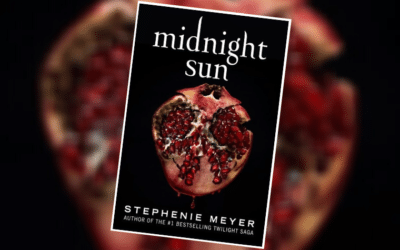If there are seven basic plots in all of fiction (and life), we have heard this one before: girl moves to city, girl gets job, girl makes friends, girl makes (fr)enemies, girl falls for guy, girl grows up. But nothing about Sweetbitter: A Novel, by Stephanie Danler is stale. Told in the first person, in a manner so intimate that you’ll feel like a new Twitter bestie is relaying tales over several bottles of Sancerre, the story is authentic with its portrayal of new adulthood — innocent while oftentimes strident — and you are immediately pulled into her quest for survival in a grown-up world.
Our narrator is a naive, at times immature, physically beautiful mess, falling into a job of backwaiter at an unnamed New York City restaurant near Union Square. In the restaurant caste system, a backwaiter is barely above the Untouchable. The work is brutal and dirty. It’s a lot of hearing “Fetch me this” while responding “Yes, of course.” Hands burnt on searing hot plates. Searching the basement dregs for a precious vintage of wine. Crawling under bar sinks to battle fruit fly infestations.
I’m tag teaming with Julianna to talk Sweetbitter. Cheese (as she’s known in Twitter circles) turned me onto this book via my fellow TN’er Lindsey, and I flew through it. The best friends to have are those who help you discover good books.

Amy: What I loved most about this book was how Danler captured the service industry universe. It such an insular world, where you work long hours on your feet, late into the night, finding yourself only hanging out with co-workers and staff of nearby joints. The restaurant world attracts a certain kind of person, and I think Danler did an amazing job casting her characters who love food and wine and yet suffer the tragedy of taking the environment way too seriously.
Julianna: Stephanie Danler worked for years at Union Square Cafe, and she’s wonderful at describing the mundane tasks in restaurant life and making them seem larger than life. She also captures the bonding that happens when we’re with the same group of people all day, every day, especially when we come to the city not knowing anyone outside of your job. She’s essentially an orphan, coming from an unnamed nowhere and having no contact with anyone from there. The restaurant staff becomes her family.
Amy: Exactly. Before familiarity breeds contempt, it breeds family. And the hierarchy of the restaurant breeds longing and respect. There is a mom, a dad, an older brother. “How did that person become a waiter? I want to be a waiter. I want to have what they have. I want to serve Mrs. Neely until she passes out at her table.” I loved the post-shift drink the staff shared. The owner and the chef have created their own loyal army forged by draft beer and exhaustion (Random anecdote: after my shifts, the thing I wanted to most was a cold and frosty fountain Coca-Cola).
Julianna: The post-shift antics could be an entire separate novel. There’s an after-hours world once the restaurant closes, both there and at nearby bars that become regular hang-outs for the staff that then close their doors and become a private service-industry club. But once she’s accepted in that group, it’s not enough for her. She wants to go higher. She wants to be with the staff elite.
Amy: Let’s talk about Simone. Every protagonist needs an antagonist. Simone is the head waiter to our backwaiter, taking our narrator under her wing to teach her about wine and food. Simone is not just selling food. She is selling flavor and culinary arts; she is selling not just the bottle of the wine but the land where the grapes were grown — the terroir.
Julianna: Simone is a fascinating character. I was never sure of her motivation. At times she was a friendly mentor, at others she was mothering, and then at others I wanted to run from her. She’s wonderfully complex, first seen as everything our narrator wants to become and then the cracks in the facade become bigger and bigger.
Amy: Simone is a great seductress, offering entry and insight to the restaurant but also the real gatekeeper to the narrator’s love interest, Jake. I felt so many emotions about Simone. I liked her. She annoyed me. She impressed me. I hated her. And then I pitied her because Simone’s loyalty to the restaurant revealed her to be so stunted in her own life. The thought of indulging and steering the whims of young staff (who love drink and drugs) in order to live my life is cringe-inducing. Talking about how how the French have “words full of grey” to children, calling them “Little One.” Kill me. Simone might win but she is not a winner. And I don’t mean that as a jab against life long folks in the service industry. It’s really a condemnation of people who stagnate.
Julianna: Simone’s carved out her kingdom there (queendom? Screw you, patriarchy, I’m going with queendom). And it takes a while to figure out that she’s stuck, that no one will rescue her, that there’s nowhere else she can go and have that same control (and likely salary) that she commands, and that she’s running out of options, if she hasn’t already. So the newbies that she deems passable are her projects, and she’ll pour an enormous amount of energy and love into them, until they threaten her queendom.

Amy: So our narrator meets the swoon-worthy bartender and is instantly smitten because he’s good looking, ignores her, and then kisses her in the wee hours at a late night haunt. Jake has her in his palm the moment he places four fresh figs in her locker, a fresh secret just for them. Sweetbitter delves into how we confuse intimacy with being aloof. If we have to fight to get even the teeniest glimpse — teeniest taste — into someone’s true self, we cling hard. Everyone wants to be a cool enigma, yet hardly anyone really is. No one worth counting on, in my experience.
Julianna: I heard about this book on NPR, when the interviewer squealed over the author that she had managed to write a ‘literary sex scene’ which I guess is something of a unicorn. I have so many books on food, and started reading romance and erotica a year ago (I still feel like a newbie here). Sex and food? That oyster scene? How can I pass that up?
Amy: Maybe I’ve been having sex for too long, but I’ve been asked multiple times to taste myself. It can be either incredibly sexy or incredibly “my vagina clenched and not in a good way.”
Julianna: I liked the progression of it. Our narrator is voracious, tasting and drinking and learning and wide-eyed and curious and here’s a moment when it’s turned on her and she’s ordered to taste herself. I think it’s the first time she’s in any way self-reflective.
Amy: Getting finger banged in the back of cab calls for self-reflection.

Julianna: We should all be finger-banged in the back of cab by a chain-smoking Kierkegaard-quoting tattooed bartender at some point in our youth, or whatever your personal equivalent of Jake may be. But, getting back to our story, the writing, her way of describing the simplest ingredients, her wide-eyed view of her narrow world…. When we’re writing and talking about food, finding words to describe what is tasted, what is smelt, how to categorize it, becomes forensic. A cheese that is grassy, barnyard, with hints of onion that indicates the cow was eating horseradish. It can get ridiculous: I heard from another cheese instructor that a class participant described “mineral” as “licking the side of limestone building.” But I love that description, as it oddly captures the idea of what “mineral” tastes like.
And Danler calls out the overtly reverence and preciousness with how food is discussed, even whilst doing it herself. When giving Mrs. Neely, the elderly regular, a new wine to try, her flowery description is dismissed.

Amy: Mrs. Neely at first appears to be the old lady to be pitied but she is actually the Greek chorus. Mrs. Neely know what’s up. When you are young, you think everything is real and hardly anything is. So much is artifice. What good is it to know the difference between Pacific oyster and North Atlantic oysters if you don’t know yourself.
Julianna: And whilst fiction, the book is a great primer on food. Danler takes us through the five tastes (sweet, bitter, sour, salt, and umami) right at the start, setting up the foundations for the narrator’s education and our own. When our narrator says “you will develop a palette” she’s not just talking about taste and how to describe it to a guest. How does she categorize her experiences over the year? Can you appreciate the sweet without the bitter, the sour without the salt? Umami is used to classify foods that can be on the cusp of turning (parmesan cheese, anchovies, mold-encased dried beef), which at first serves as a warning to us to turn away from them, but they are so delicious that we eat them anyway. You could say that Jake is her umami.
Amy: I cannot recommend this book enough. Danler has created such a unique voice, that I fell in love with the writing as much as the story and characters. She is a very talented writer and also a feminist writer. The book is marketed as a love story, but I was never really pulling for the love. I was always pulling for our gal backwaiter.




